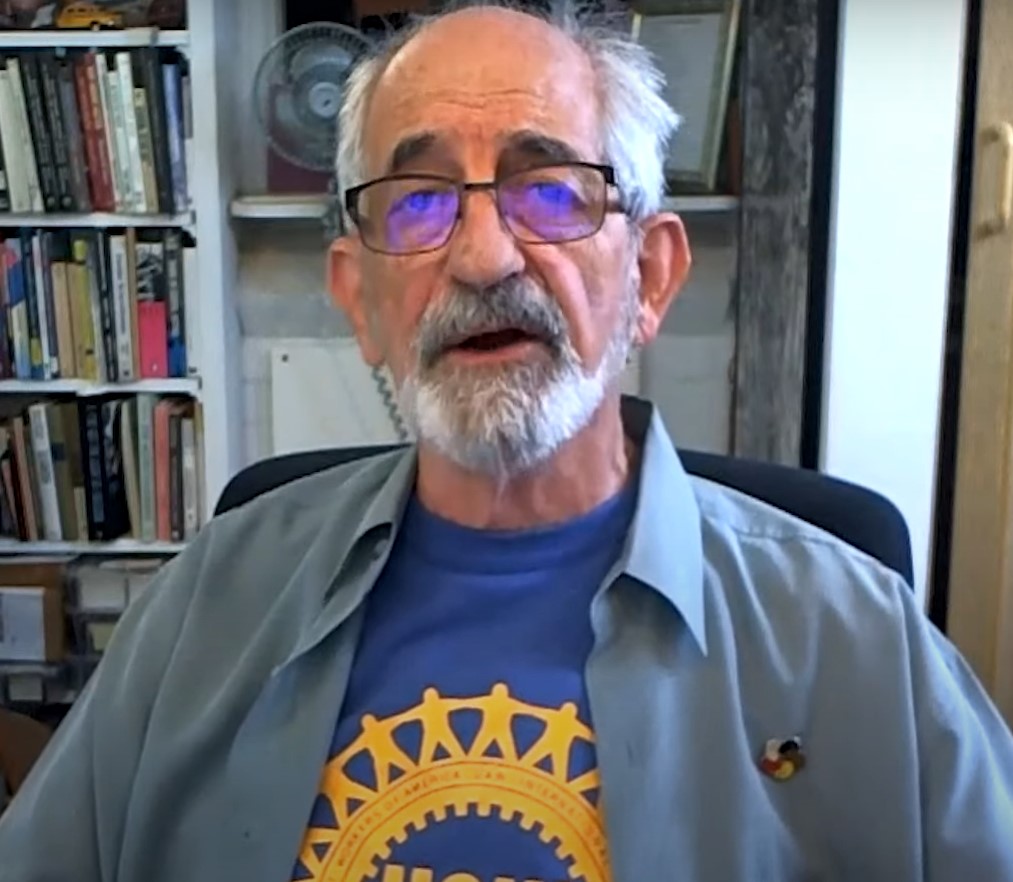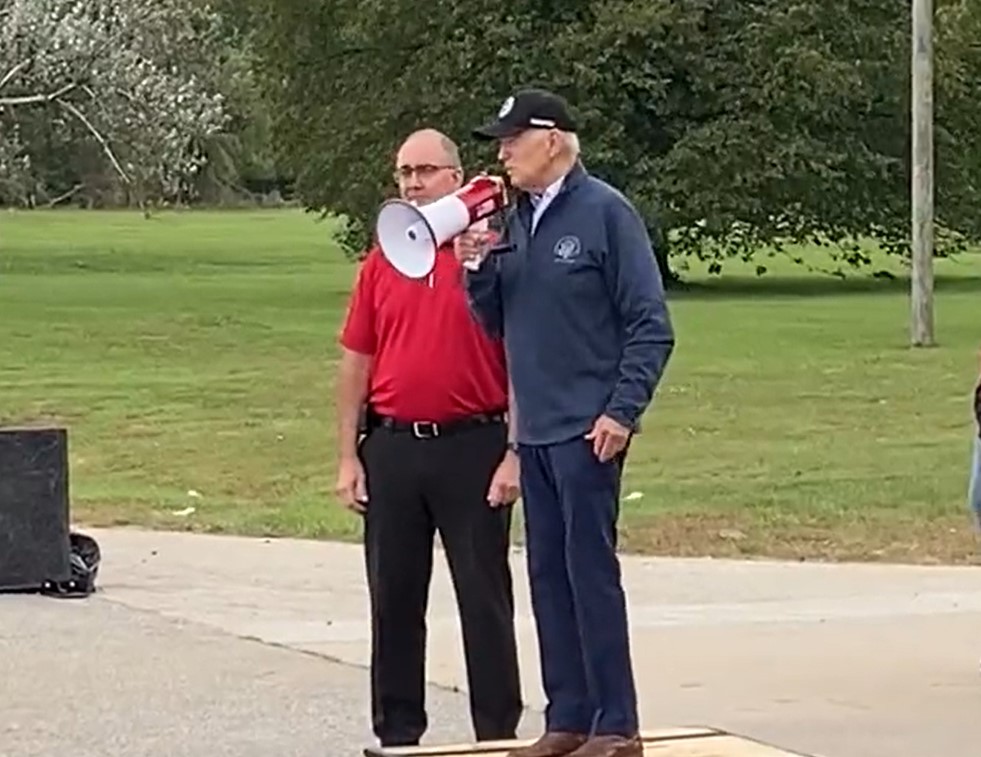By Richard Mellor in California
I just watched this very good interview (below) with Frank Hammer, former president of UAW local 909 in Detroit, on the present UAW strike. A few quick comments:
Frank points out the very important developments in this strike, including the international support the strike is getting in the form of letters and resolutions from unions around the world. There is always the potential for international solidarity in an action that is crucial in the struggle against what are global corporations.
Jack Henning of the California Labor Federation issued a call back in the 1990s for “global unionism to fight global capitalism”. Unfortunately, he did nothing to build on that declaration particularly calling for joint actions across national borders.
Frank is a usually present at the regular discussions of supporters of the Facts For Working People blog and his contributions have been very important. In the interview he rightly applauds the fact that not only is it the first time all of the ‘Big Three’ auto manufacturers have been struck, but also the historic event of a sitting US president attending the picket lines. (Picture above, from UAW Twitter feed). But he also reminds us that the restructuring that occurred in the first decade of this century was a product of Bush, Obama and Biden.
If Biden wants to reassure workers he’s sincere in his pro-union claims, leading a national movement for an increase in the minimum wage would be a start, says Frank, in answer to a question about Biden’s role. I agree wholeheartedly with comrade Frank’s enthusiasm and his cautionary comments regarding Biden.
We should not lose sight of the fact that the Democrats are looking for another four years in the White House and given the apathy among millions of voters, a product of decades of betrayals and lies from this capitalist party, they are not guaranteed success in this venture. The 80-year old Biden is not a popular character.
Millions of US workers and youth moving into struggle
But being forced to make decisions they would not normally make (they don’t like unions at all, but can’t call for getting rid of them), can sometimes push the movement further than they would like it to go. There are dangers here as the situation is very volatile in the US, as millions of workers and youth are moving into struggle in the workplaces like Starbucks, and around environmental issues, as Frank points out.

It seems inevitable that the auto bosses will have to concede some of the UAW’s demands, given the popular support and the danger to the economy if production at the Big Three is slowed, but how far remains to be seen. Also, in the next downturn, if profits head south, what will the present leadership do then?
The Team Concept, and the acceptance that profits are sacrosanct that the entire leadership of organized labor, including Shawn Fain, the UAW president, supports, will demand that workers take cuts to keep the company afloat. The same old message.
The issue of electric vehicles is addressed briefly, and an important demand in this dispute is that the UAW represent the workers at these plants. The interviewer points out that the auto companies have received $9 bn in subsidies to shift production to this sector. We see here that government welfare in the private sector is OK when its profits that are being propped up, and the UAW members and the US taxpayers have already donated billions to helping these private corporations stay afloat.
It’s a short step from this government/taxpayer assistance to the taking in to public ownership of the transportation industry which is what these companies are involved in. Let’s take the whole industry and run it ourselves. Mass transit is the solution to public transportation as electric vehicles are not the answer and their production also has serious environmental consequences.
I hope readers will share this interview. You won’t get this stuff in the mainstream media.



